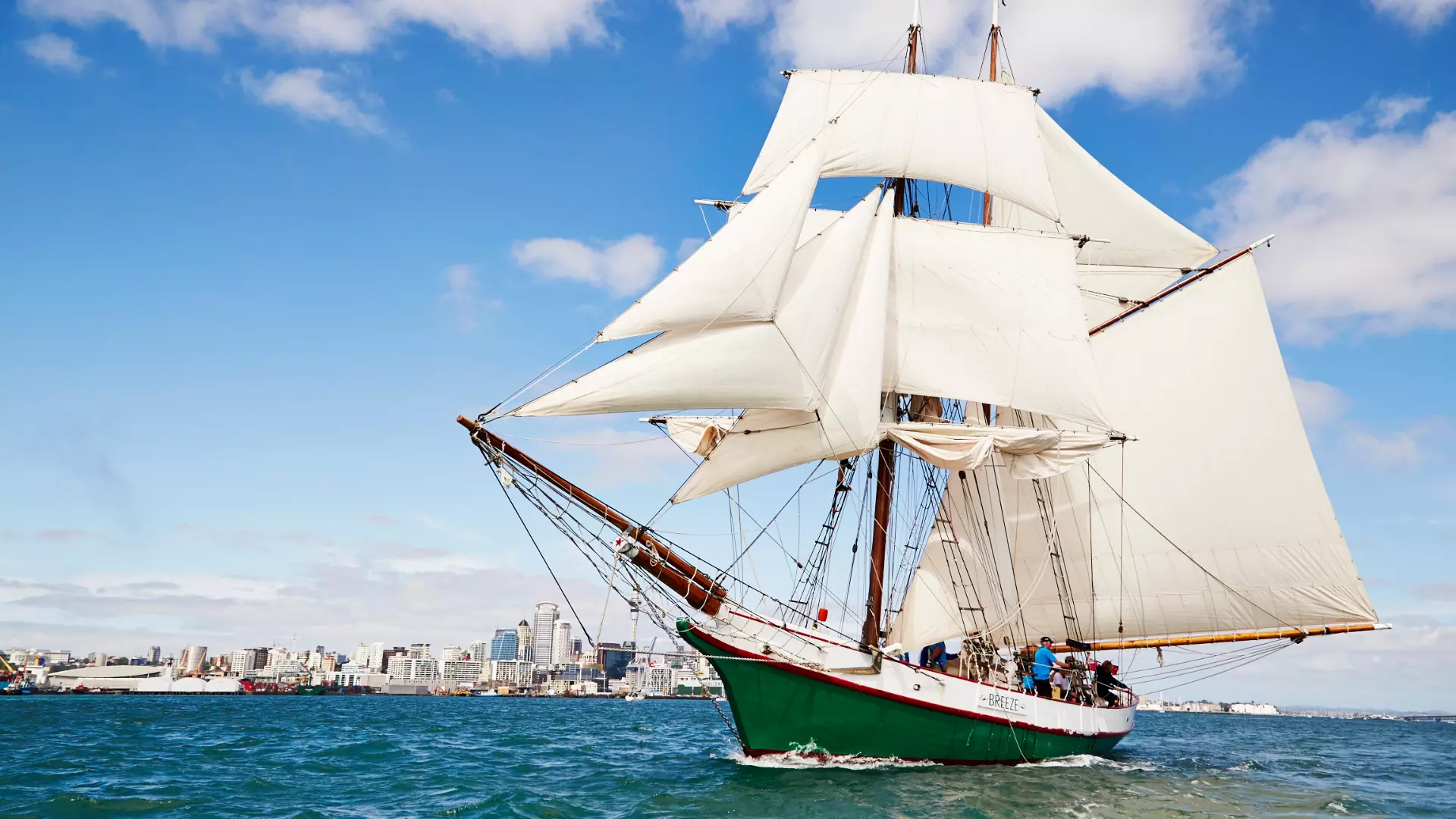Compiled by one of our trusty volunteer crew, Ted Armitage | 17 September, 2021
Many common English phrases have a nautical backstory. Some, like "even keel" are fairly self-explanatory - but others may suprise you! Take a look at the list below and see how many you use in everyday speech...
- A Clean Bill of Health: A "clean bill of health" was a certificate, signed by a port authority, attesting that no contagious diseases existed in the port of departure and that none of the crew was infected at the time of sailing. On shore, the phrase is typically used to mean that things are in good shape.
- At Loggerheads: A "loggerhead" is an iron ball attached to a long handle. When heated, it was used to seal the pitch in deck seams...but it was also known to came in handy as a weapon for quarrelling crewmen (hence its common usage now to describe two people who are in firm disagreement).
- Chock-a-Block: A "block and tackle" is a pulley system used on sailing ships (like the the museum's scow Ted Ashby) to hoist the sails. The phrase describes what occurs when the system is raised to its fullest extent – when there's no more rope free and the blocks jam tightly together. This led to the meaning, “crammed so tightly together as to prevent movement”.
- Dressing Down: Thin, worn sails were often treated with oil or wax to renew their effectiveness. This was called “dressing down”. When a sailor was reprimanded or scolded it was known as receiving a “dressing down”.
- Dutch Courage: This phrase dates from the Anglo-Dutch wars in the 1600’s and was likely British propaganda claiming that the Dutch troops were so cowardly that they wouldn't fight unless fortified with copious amounts of schnapps! The term has come to mean false courage induced by drink.
- Even Keel: The keel is the backbone of a vessel, helping to keep it from rocking back and forth. A ship that floats upright without a list is said to be on an "even keel" and this term has come to mean calm and steady.
- Figurehead: A "figurehead" is an ornamental decoration placed on the bow of a ship. Historically, these ornaments (often religious or spiritual figures) were believed to help protect the ship from misfortune. Over time, however, the custom became purely decorative. Hence the term figurehead – a leader with no real power or function except to “look good” or appeal to a certain group.
- Give a Wide Berth: When you anchor a ship far away from another ship in order to avoid collision, this is known as "giving a wide berth". The phrase is now used to describe the act of avoiding or staying away from someone or something.
- Groggy: In 1740, British Admiral Vernon (whose nickname was “Old Grogram” after the cloak he wore made outof of grogram, a material containing silk and wool) ordered his sailors' daily ration of rum to be diluted with water. The men called the mixture “grog”...and a sailor who drank too much grog became “groggy”. Nowadays, the word is used to describe someone who is dazed or unsteady, whether due to intoxication or something else.
- Junk: Sailors used the word "junk" when referring to old rope that was no longer able to take a load. These scraps were often cut into short lengths and used to make mops - check out this video for instructions on how to try this upcycling project for yourself!
- Keel Hauling: "Keel hauling" was a severe naval punishment used during the 15th and 16th centuries. The delinquent sailor was dragged from one side of the boat to the other under the keel. Keel hauling lost favour at the beginning if the 18th century, to be replaced with the only slightly less brutal cat-o-nine-tails. The term still means a rough reprimand.
- Keeled Over: This phrase has a similar origin to "even keel" and was a term used by sailors when someone died. It's still used in the same way today.
- Listless: When a ship is "listless", it's sitting still and upright in the water, with no wind to make her lean over (list) and sail ahead. On land, we say somoene is "listless" when they lack energy or enthusiasm.
- Loose Cannon: A cannon that came loose on a pitching, rolling, yawing deck could cause severe injury or damage. The term has come to mean an unpredictable or uncontrolled person who is likely to cause unintentional damage.
- Three Sheets to the Wind: In sailing terminology, a "sheet" is a rope that controls the tension on the downwind side of a square sail. If, on a three-masted, fully-rigged ship, the sheets of the three lower sails are loose, the sails will flap and flutter. A ship in this condition will stagger and wander aimlessly downwind...just like a sailor who's had one too many rums!
- Toe the Line: When called to line up at attention, a ship’s crew would stand with their toes touching a seam in the deck planking. We now use the phrase to describe someone who's bowing to authority.
- Turn a Blind Eye: This one originates from from Admiral Lord Nelson’s act at the Battle of Copenhagen, when the signal was given to stop fighting. Nelson held his spyglass to his blind eye and insisted that he couldn't see the signal. He then proceeded to continue with the fighting and the Royal Navy defeated the Danish warships. Today, when a person pretends not to notice something important, we can say they're "turning a blind eye".
- Warning Shot Across the Bow: This phrase (or sometimes simply "a shot across the bow") comes from the literal practice of firing a canon shot across the bow of another ship, in order to encourage the other captain not to engage in a fight. In modern terms, it's used to discribe warning someone to stop what they're doing.
Source: Crewseekers.net
Ted Armitage is a volunteer crew member on the Ted Ashby and Nautilus. He is also the craftsman behind a selection of beautiful, hand-carved utensils available in the museum shop.

